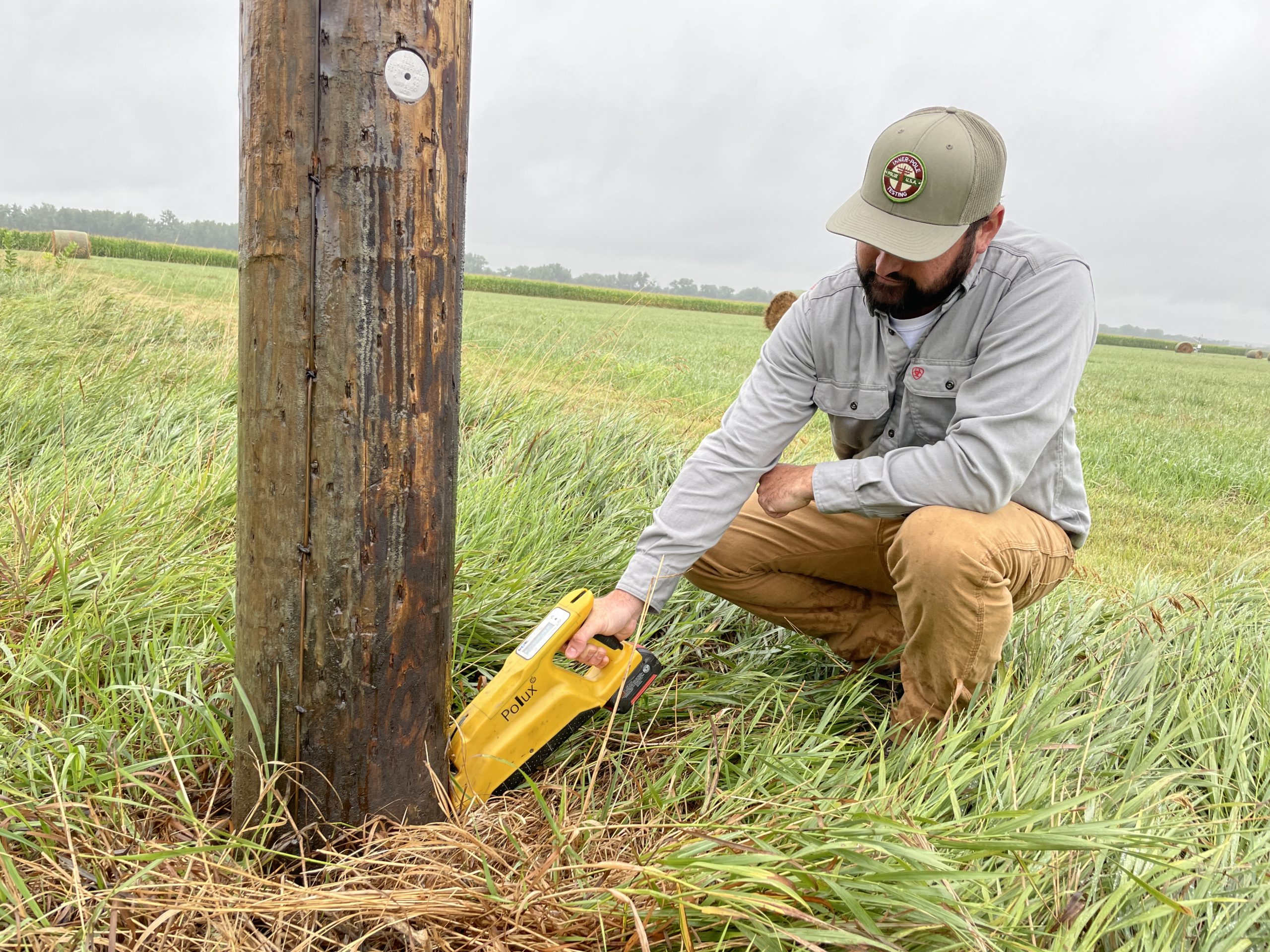
As a not-for-profit utility, Dawson PPD focuses on cost-effectively extending the life of its existing facilities while maintaining adequate levels of safety and reliability. Testing wooden poles helps the District ensure reliability and long life of its equipment, saving customers money in the long run.
Traditionally, pole testing involved a hammer for sounding, a shovel for digging around the base and drilling holes to test for decay. Today, Dawson PPD hires a contractor that uses a scientifically-based system called POLUX as a less-invasive and more accurate form of testing.
POLUX works by sending two, three inch long probes the size of an eight-penny nail into the base of the utility pole. This is the most vulnerable point where decay is most likely to occur on a pole. The probes measure resistance and moisture content of the pole. This information, along with the type of wood the pole is made of and how it was treated are run through a computer program with the pole’s GPS location recorded.
Typically, Dawson PPD uses a Southern Yellow Pine tree for its poles, which should have a resistance of 8,000 pounds per square inch when new. If the measurement falls below 50 percent of the recommended resistance, in this case 4,000 PSI, the pole is marked for replacement.
All of Dawson PPD’s poles are tested every 10 years on a rotating schedule with 10,000-11,000 poles tested annually.
OTHER NEWS
How to save energy while staying home
The coronavirus crisis means people are spending more time at home, and that extra time spent in your home will add to your energy bills. Although warmer weather and lighter evenings mean you will use less energy, you could still see higher energy bills simply because...
Happy National Lineworker Appreciation Day
April 13, 2020, is National Lineworker Appreciation Day. Lineworkers know how to get the job done. Let's thank them for powering our lives. The National Rural Electric Cooperative Association Board Resolution states: "Whereas linemen leave their families and put their...
Dawson PPD temporarily suspends electrical disconnections for nonpayment
(April 6, 2020) Lexington, Neb. – Dawson Public Power District will temporarily suspend electrical disconnections for nonpayment in response to the COVID-19 crisis. “COVID-19 has changed life as we knew it,” said Dawson PPD Consumer Accounts and Records Supervisor...


